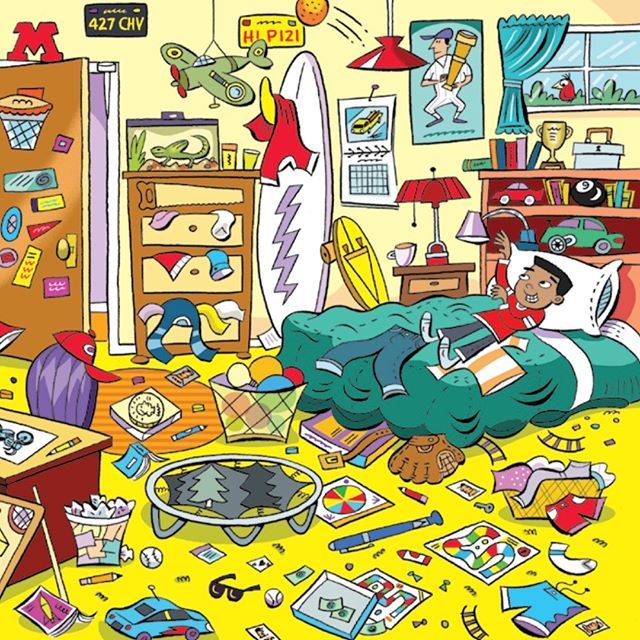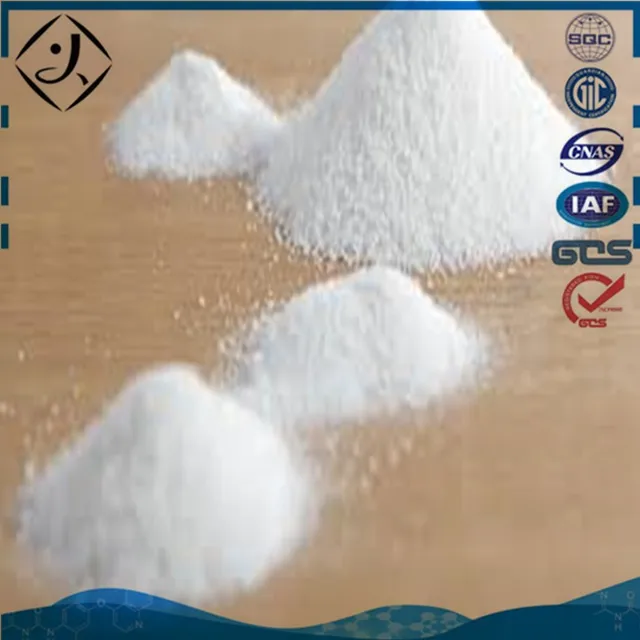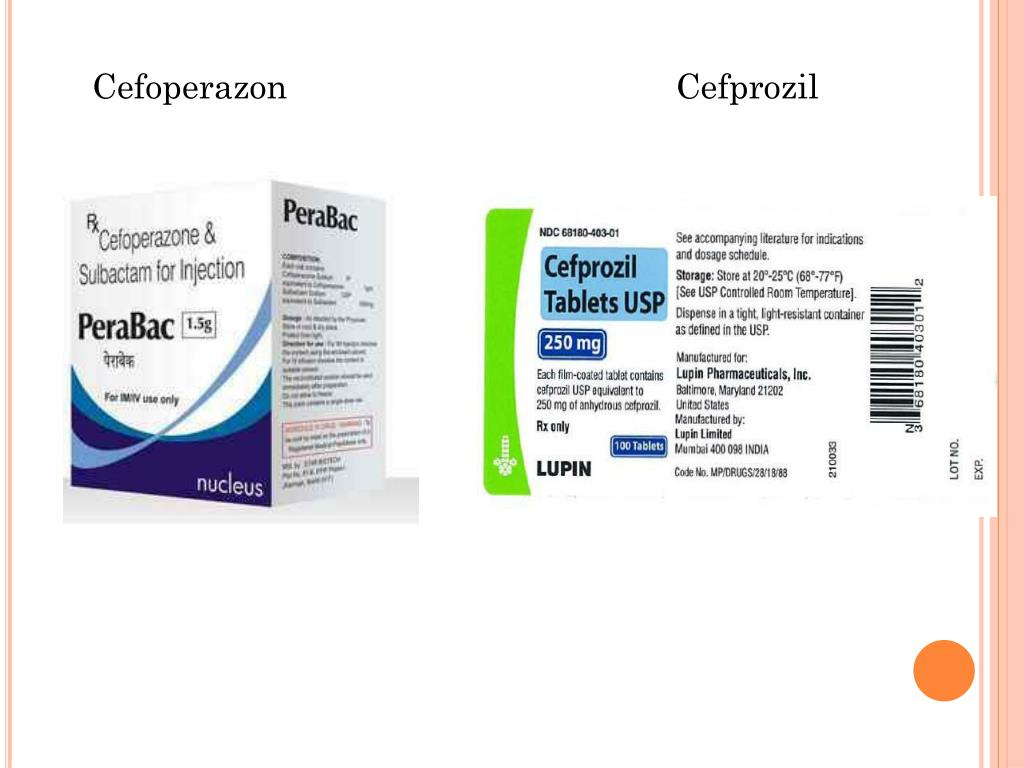Hyper self consciousness
Can You Be Too Self-Aware?
Source: DeVisa/Shutterstock
Self-awareness seems like a good thing—after all, it allows you to know yourself, understand your motivations, and ultimately make better decisions. But it can also lead you to second guess yourself and spin out into an excruciating state of self-consciousness, micro-analyzing every nuance of your thoughts and actions. Let’s take a closer look at the two components of self-awareness and see how they work.
Internal Self-Awareness
Internal or private self-awareness is a metacognitive process in which we take an observer’s perspective of our own thoughts. Internal self-awareness occurs when people become aware of some aspects of themselves, but only in a private way. For example, seeing your face in the mirror at home is a type of private self-awareness. Noticing that you can’t stop thinking a certain thought. Feeling your stomach drop when you realize you left your phone at a restaurant or feeling your heart skip a beat when you see someone you are attracted to are examples of internal self-awareness.
External Self-Awareness
External or public self-awareness emerges when we become aware of how we appear to others. We take the perspective of a public observer. That is, we’re aware that others can see us—and we may start to speculate on what we think they are seeing. External self-awareness often comes on line in situations where we are at the center of attention, such as when giving a presentation or talking to a group of friends. This type of self-awareness is often what compels people to adhere to social norms. When we are aware that we are being watched and possibly evaluated, we are more likely to try to behave in ways that are considered socially acceptable and desirable.
Both types of self-awareness are necessary to maintain our sense of self and to navigate complex social interactions. For instance, in a conversation at a social gathering, we need to be aware of our thoughts and feelings so we can decide whether or not to share them. We also need to be aware of how others are perceiving us and reacting to what we are saying.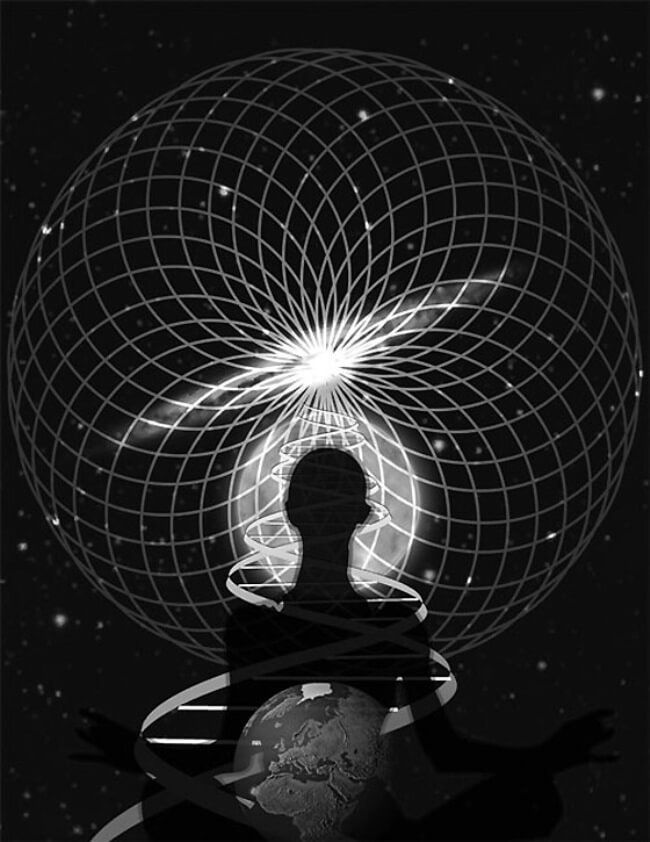 However, certain habits of self-awareness can make us self-conscious.
However, certain habits of self-awareness can make us self-conscious.
Self-Consciousness
People who tend to be internally self-conscious have a generally higher level of internal (or private) self-awareness, which has both benefits and hindrances. People who focus their awareness internally tend to be more aware of their feelings and beliefs. So they are more likely to stick to their personal values because they are acutely aware of how their actions make them feel. However, they also tend to focus on their negative internal states like unpleasant thoughts and body sensations. These negative internal states may then become magnified through intense internal focus and can lead to increased stress and anxiety.
People who tend to be externally self-conscious have a higher level of external (or public) self-awareness. They tend to focus more on how other people view them and are often concerned that other people might be judging them based on their looks or their actions.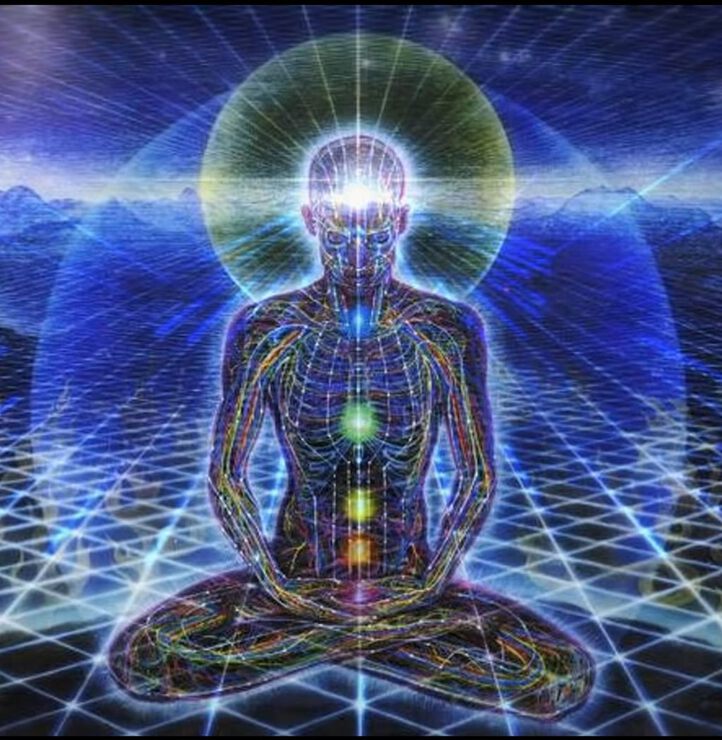 As a result, they tend to stick to group norms and try to avoid situations in which they might look bad or feel embarrassed. So they might not take risks or try new things for fear of looking stupid and wrong in public. External self-awareness can also lead to evaluation anxiety in which people become distressed, anxious, or worried about how they are perceived by others. Habitual intense public self-consciousness can lead to chronic conditions, such as social anxiety disorder.
As a result, they tend to stick to group norms and try to avoid situations in which they might look bad or feel embarrassed. So they might not take risks or try new things for fear of looking stupid and wrong in public. External self-awareness can also lead to evaluation anxiety in which people become distressed, anxious, or worried about how they are perceived by others. Habitual intense public self-consciousness can lead to chronic conditions, such as social anxiety disorder.
For most people, the uncomfortable feelings of self-consciousness are only temporary and arise in situations when we are "in the spotlight." Most everyone experiences self-consciousness from time to time. Have you ever felt like a person or a group was watching you, judging your actions, and waiting to see what you will do next? This heightened state of self-awareness can leave us feeling awkward and nervous in certain situations.
How can you better manage states of uncomfortable self-consciousness?
First, realize you have a choice on where you put your attention.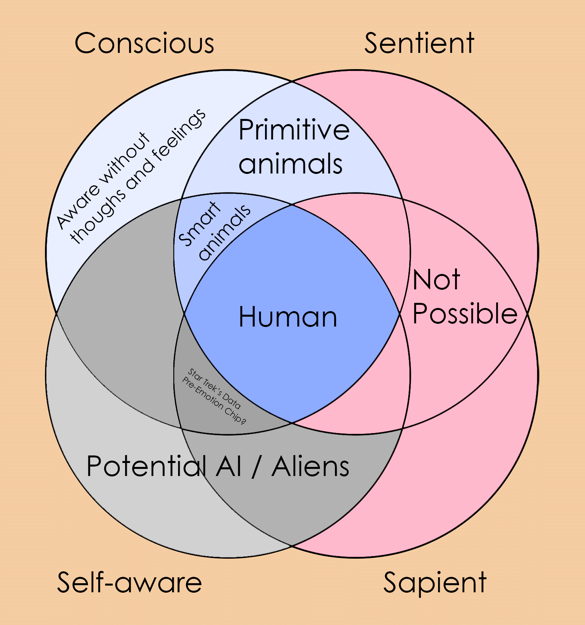 Then, deliberately shift your attention outward.
Then, deliberately shift your attention outward.
If you are in a state of external self-consciousness, shift your attention off yourself onto others. For instance, if you are giving a presentation, focus your attention on your audience and building a rapport with them. Don’t focus on yourself and how nervous you are or how you are feeling moment to moment. Focus your attention outward instead. In a conversation in which you start to feel uncomfortably self-conscious, shift the focus to the other by asking them a question that indicates that you're interested in learning more about them. When we feel anxious we tend to focus on ourselves and that tends to make us even more anxious. In conversation, remember to volley the attention back and forth—don’t hold the ball of self-consciousness.
If you are in an uncomfortable state of internal self-consciousness such as a self-conscious thought loop, shift your focus outward. Look at your surroundings, find something beautiful, find something blue—play a game with yourself to see the world anew.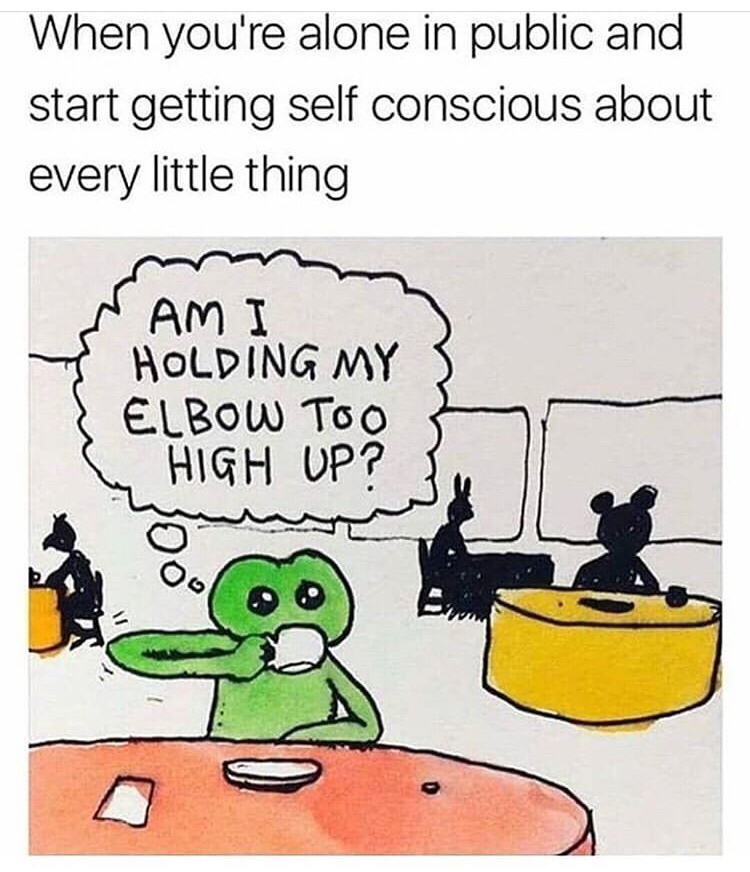 Engage your senses: feel the texture of a velvet pillow, smell the grass, listen for a bird, feel the pressure of your feet on the ground, and the air brush against your cheek. This might seem a bit silly if you're worried about important matters—but it works to take your attention off yourself in the moment and take a break from self-scrutiny. When we are in an uncomfortable internal state we tend to lose sight of the bigger picture.
Engage your senses: feel the texture of a velvet pillow, smell the grass, listen for a bird, feel the pressure of your feet on the ground, and the air brush against your cheek. This might seem a bit silly if you're worried about important matters—but it works to take your attention off yourself in the moment and take a break from self-scrutiny. When we are in an uncomfortable internal state we tend to lose sight of the bigger picture.
Remember you can always choose where you put the focus of your awareness.
Facebook image: Antonio Guillem/Shutterstock
LinkedIn image: Anatoliy Karlyuk/Shutterstock
The 3 Levels of Self-Awareness
Written By Mark Manson – filed under Focus | Happiness | Personal Values
Self-awareness is like great sex: everyone thinks they have a ton of it, but in reality no one knows what the fuck they’re doing.
The fact is that the majority of our thoughts and actions are on autopilot. This isn’t necessarily a bad thing either. Our habits, routines, impulses, and reactions carry us through our lives so we don’t have to stop and think about it every time we wipe our ass or start a car.
This isn’t necessarily a bad thing either. Our habits, routines, impulses, and reactions carry us through our lives so we don’t have to stop and think about it every time we wipe our ass or start a car.
The problem is when we’re on autopilot for so long that we forget we’re on autopilot. Because when we’re not even aware of our own habits, routines, impulses, and reactions, then we no longer control them—they control us.
Whereas a person with self-awareness is able to exercise a little meta-cognition and say, “Hmm… every time my sister calls me and asks for money, I end up drinking a lot of vodka. That might not be a coincidence,” a person without self-awareness just hits the bottle and doesn’t look back.
Table of Contents
- Self-Awareness
- What Are You Doing
- What Are You Feeling
- What Are Your Blind Spots
- Increasing Your Self-Awareness
- Self-Acceptance Is the Goal
Self-awareness is one of the most important psychological traits you can develop within yourself for life.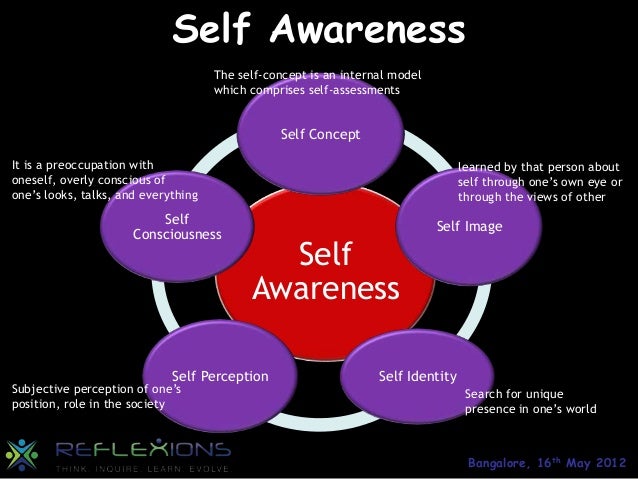 Its benefits extend to like everything—whether it’s managing your emotions in conflict or understanding your weaknesses at work or being realistic on what you can accomplish. Every step of the way, self-awareness is necessary to make it happen.
Its benefits extend to like everything—whether it’s managing your emotions in conflict or understanding your weaknesses at work or being realistic on what you can accomplish. Every step of the way, self-awareness is necessary to make it happen.
Benefits of Self-Awareness
- Aids self-control, creativity, pride, and self-esteem.1
- Predicts self-development, acceptance, and proactivity.2
- Facilitates decision-making.3
- Leads to more accurate self-reports.4
- Required to develop self-control.5
One of your greatest pursuits in life should be to become more self-aware and realize these benefits. But being “self-aware” is not an all-or-nothing trait. There are varying levels which we can achieve.
Let me show you what they are.
Below are three levels of self-awareness along with a caveat. Why three levels? Who the hell knows? Just go with it.
Level 1 – What the Hell Are You Doing?
There’s a lot of pain and suckage in life.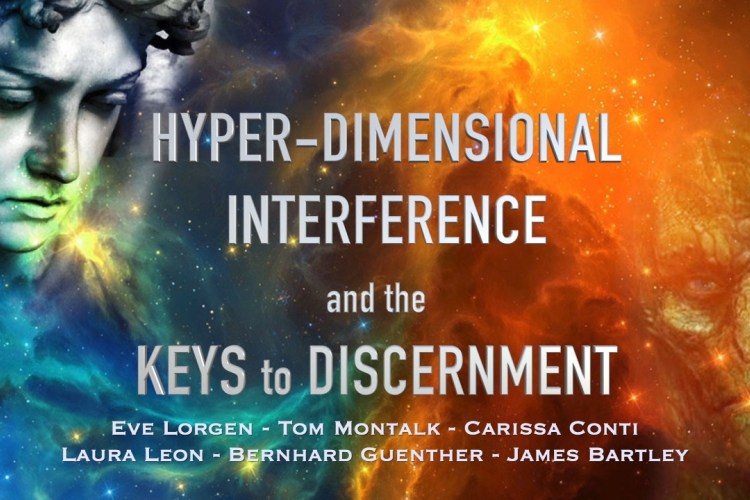 Over the last 30 days, how many times have you:
Over the last 30 days, how many times have you:
- Struggled with a relationship with someone close to you?
- Felt lonely, isolated, or unheard?
- Felt unproductive or lost on what you should do?
- Been under-slept, under-fed, low on energy, or unhealthy?
- Stressed about work or finances?
- Uncertain about your future?
- Been physically hurt, ill, or debilitated?
Chances are if you add all of those up, you’re going to be pretty close to 30 out of the last 30 days. That’s a lot of suckage!
We avoid pain through distraction. We transport our minds to some other time or place or world where it can be safe and insulated from the pain of day-to-day life. We stare at our phones, we obsess about the past or our potential futures, make plans we’ll never keep, or simply try to forget. We eat, drink, and fuck ourselves into numbness to dull the reality of our problems. We use books, movies, games, and music to carry us to another world where no pain exists, and everything always feels easy and good and right.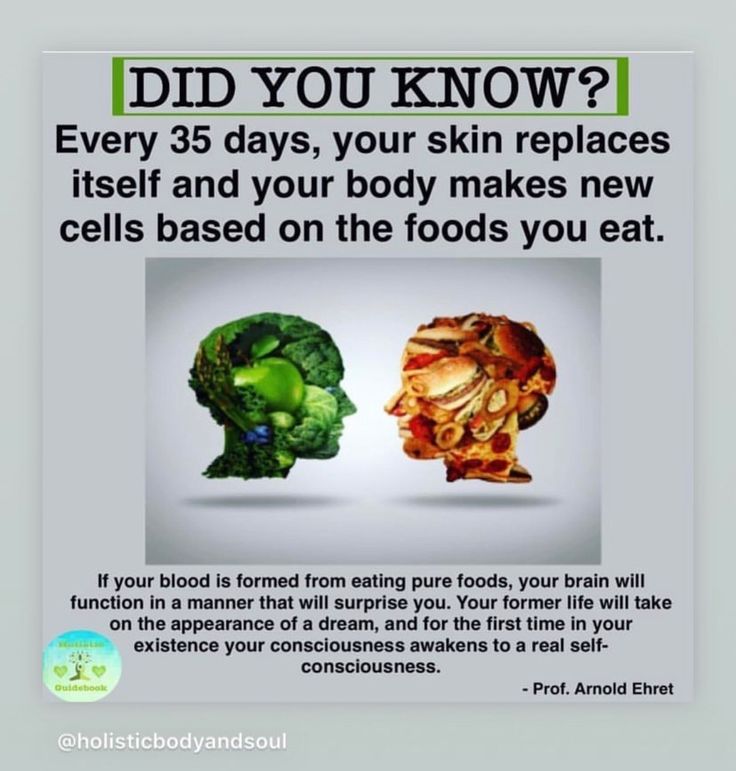
Now, there’s nothing wrong with distraction. We all need some sort of diversion to keep us sane and happy.
Put another way, we need to make sure that we’re choosing our distractions and our distractions aren’t choosing us. We’re the ones opting into the distraction, rather than simply being unable to opt out of distraction. We need to know when we’re checking out. Our distraction needs to be planned and moderated in bite-sized chunks. We can’t binge on distraction.
Most people spend much of their day drowned in a sea of distraction without even realizing it. I do it, too. The other night at dinner, I pulled out my phone to look at my calendar, and the next thing I knew, I was browsing video game forums on Reddit. Meanwhile, my wife is staring at me as if I just had a lobotomy or something.
I’m getting better. This only happens about 23 times per day.
Or sometimes I do that thing where I’ll have Facebook open, and then I’ll open another tab and instinctively type in the URL for… Facebook, the site I was already looking at.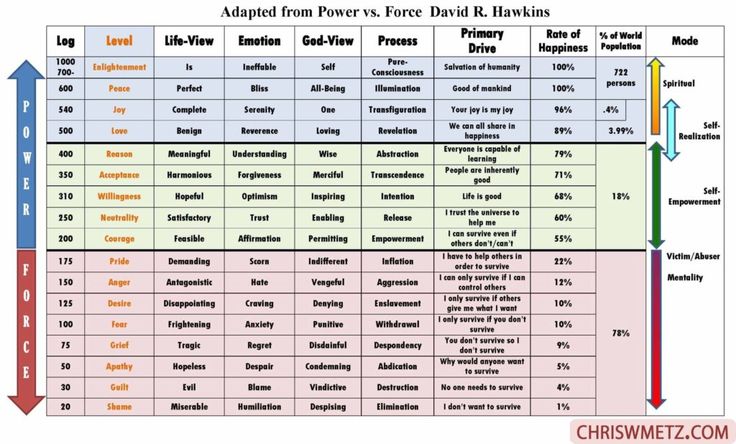 I don’t even realize I do it, but it’s my mind’s automatic move to disconnect (or in this case, disconnect from its disconnection).
I don’t even realize I do it, but it’s my mind’s automatic move to disconnect (or in this case, disconnect from its disconnection).
We all think we know how we’re using our time. But we’re usually wrong.
We think we work more than we do (studies show most people top out somewhere around three hours of actual work per day,6 the rest is just fucking around). We think we spend more time with our friends and loved ones than we do. We think we’re more present than we are, that we’re better listeners than we are, that we’re more thoughtful and intelligent than we are.
But the truth is, we’re all pretty bad at this.
Now, some people take the hardline approach of trying to remove all distraction from their lives. This is a bit extreme. If time management and self-awareness was a religion, this approach would be like strapping a bomb to your chest and blowing up a mall thinking you’ve got a one-way ticket to 72 distraction-free virgins, when really, you’re just going to self-destruct (and probably harm a lot of people around you in the process).
The goal with distraction isn’t to defeat distraction, it’s merely to develop an awareness and control of our distractions. Instead of calling in sick to play video games all day, you’re able to devote some free time to video games in a way that’s satisfying and healthy. You let yourself drift away on your phone for a while if that’s what your brain seems to need, but you’re aware that you’re doing it and able to rein it back in when necessary.
The goal here is the elimination of compulsion. But to eliminate compulsion you must first become aware of compulsion. When are you engaging in an activity you don’t want to be engaging in? When are you checking out mentally and why? Is it around family? Friends? Co-workers?
For years I used to carry around an iPod and put headphones on every time I went into public. I felt naked leaving the house without it. For years, I just assumed I was really into music way more than other people, that there was some special need inside me for badass tunes that other people simply didn’t understand.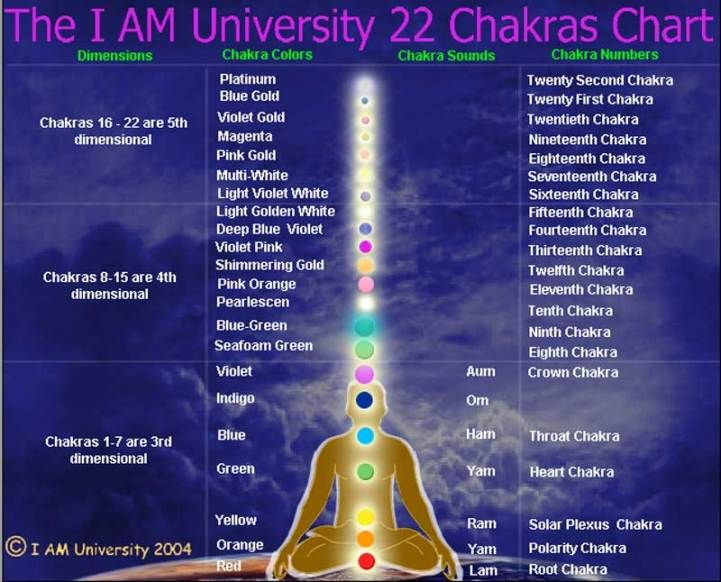
But eventually, it became clear this was a compulsion. I wasn’t in control. My headphones were a way of protecting and disconnecting myself from others. They were less about a bottomless passion and more about simple fear. Being around strangers without my headphones made me feel anxious and exposed.
Don’t judge these observations, simply have them. This is the first level of self-awareness, a simple understanding of where your mind goes and when. You must be aware of the paths your mind likes to take before you can begin to question why it takes those paths and whether those paths are helping or hurting you.
Level 2 – What the Hell Are You Feeling?
Have you ever been raging pissed and when somebody asks you why you’re mad, you’re like, “I’M NOT MAD! I’M NOT FUCKING MAD! I’M PERFECTLY FINE! I MEANT TO SMASH MY KEYBOARD THROUGH MY MONITOR! I’M NOT MAD! WHY ARE YOU MAD?!”
What people often find is that the more they remove themselves from distraction, the more they are forced to actually deal with a lot of the emotions that they’ve been avoiding for a long time.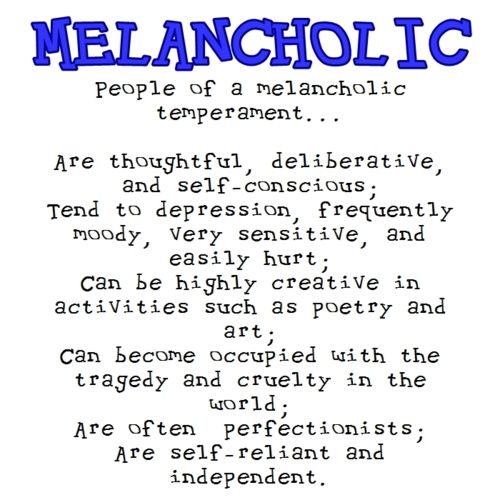
This is why meditating for a long time freaks a lot of people out. Meditation is basically the practice of training your mind to become less distracted and more focused on your immediate experience. The result is that some people become overwhelmed by all of the feelings they’ve been bottling up forever.
Therapy has a similar effect, but rather than quieting your mind and staring at a wall for hours on end, you’re sitting on a couch and a really nice and friendly-looking man/lady is slowly guiding you back to how you feel, over and over, until your mind finally capitulates and you’re snotting everywhere and crying like an upset child.
This second level of self-awareness is where you really start finding out “who you are.” I hate using that phrase because it doesn’t really mean anything, but this is the level that people talk about when they say they are “finding themselves”—they are discovering how they actually feel about the shit going on in their life, and often they have been hiding these feelings from themselves for years.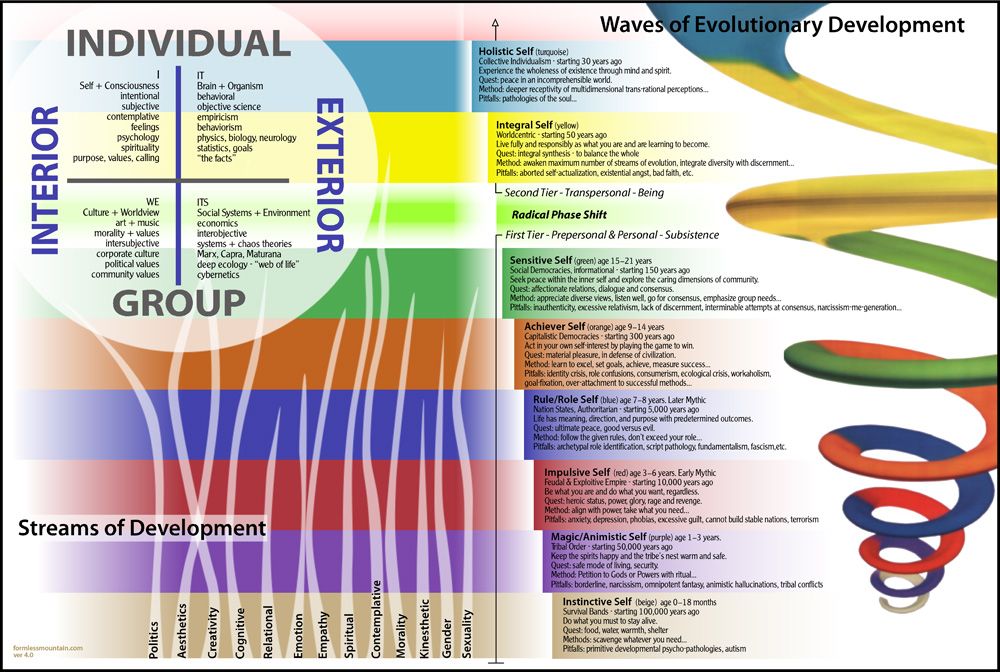
Most people glide on the surface of Level 1 of self-awareness. They do what they’re told. They follow directions. They distract themselves with the same shit over and over. At no point have they allowed themselves to express individual emotions and reactions to what’s going on around them.
Once they’re removed from these contexts they start to realize things like, “Oh damn, I’m really sensitive and am sad a lot, and holy shit, I never allowed myself to feel that because I thought it made me weak or pathetic, but actually my sadness is part of what makes me different.”
Level 2 is an uncomfortable place to go. People often spend years in therapy navigating Level 2. It takes time to become comfortable with all of your emotions. Going back through those emotions and allowing them to take place is something that requires a lot of focus and a lot of effort.
But a lot of people also get held up on Level 2. They think Level 2 is as deep as it goes and they get lost wallowing in their feelings for the rest of their lives. I think this happens for a couple of reasons.
I think this happens for a couple of reasons.
The first is that emotions are powerful, especially for people who have been suppressing their emotions for most of their lives. Suddenly opening up to them will feel life-changing and incredibly profound.
As a result, a lot of people start spinning up a bunch of stories about how this is the ultimate level of self-awareness, just feeling stuff all the time. They may even go as far as to consider it a “spiritual awakening.” They’ll describe it in all sorts of high-falutin’ terms like “ego death” or “transcendent consciousness” or “higher consciousness.”
But this is a bit of a trap. Emotions, as you eventually discover, are a) endless, and b) don’t necessarily mean anything. I mean, sometimes they do, but sometimes they’re also self-induced and completely arbitrary.
For instance, look at this puppy.
You probably felt good looking at that.7 Now does that feeling mean anything? Fuck no, it’s just a puppy. But a lot of people ascribe profundity to any and every emotion that arises.
But a lot of people ascribe profundity to any and every emotion that arises.
It’s a simple but often disastrous error. They assume that because some emotions are incredibly important and vital, that all emotions must be incredibly important and vital. And that’s simply not the case. A lot of emotions are pointless or—and here’s the kicker—merely distractions!
Yes, you heard me. Emotions can also be distractions. From what? From other emotions.
Part of developing a strong sense of emotional intelligence is being able to discern which emotions that you experience are important to act on and which emotions should be acknowledged and felt and nothing more.
See, there’s another subtle little trap with emotions. And that’s the fact that analyzing one emotion will generate another. So you can end up in this endless loop of self-inquiry, which, after a while, will turn you into a really self-obsessed person.
But wait, hold on, this one deserves its own section.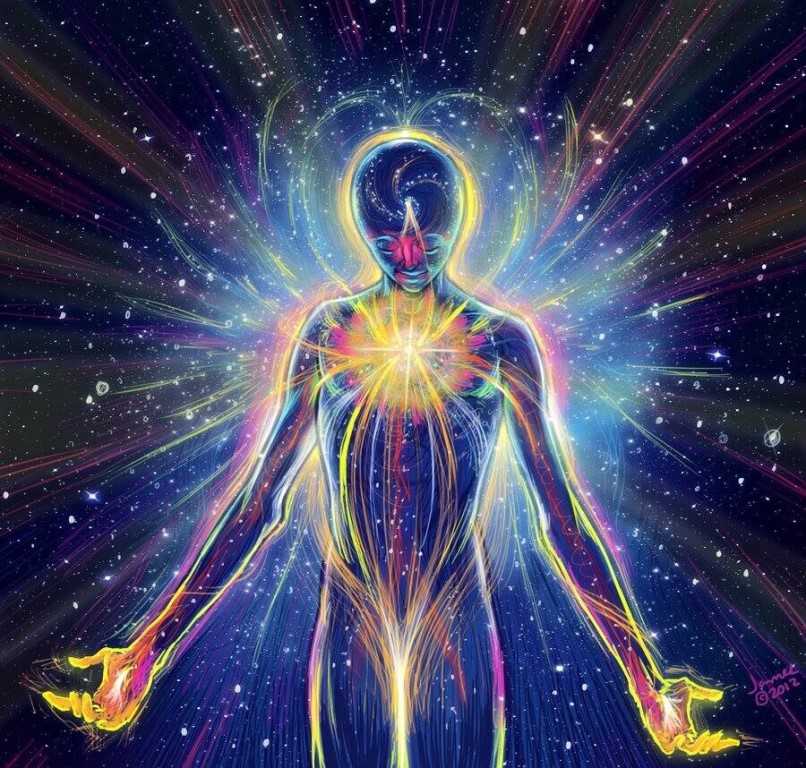
Caveat—The Endless Navel-Gazey Spiral of Doom
There’s an old apocryphal story from 16th-century India where a young man climbs a large mountain to speak to the sage at the top. Supposedly this sage knew, like, everything and stuff. And this young man was anxious to understand the secrets of the world.
Upon arriving at the top of the mountain, the sage greeted the young man and invited him to ask him anything (note: this was way before Reddit threads). The young man then asked him his question, “Great sage, we stand upon the world, but what does the world stand upon?”
The sage immediately replied, “The world rests upon the back of a number of great elephants.”
The young man thought for a moment, and then asked, “Yes, but what do the elephants stand upon?”
The sage replied again, without hesitation, “The elephants rest upon the back of a great turtle.”
The young man, still not satisfied, asked, “Yes, but what does the great turtle rest upon?”
The sage replied, “It rests upon an even greater turtle. ”
”
The young man, growing frustrated, began to ask, “But what does—”
“No, no,” the sage interrupted, “stop there—it’s turtles all the way down.”
In The Subtle Art of Not Giving a Fuck, I compared self-awareness to peeling an onion, that whatever you’re thinking/feeling, there’s always another layer underneath, and the deeper you go, the more layers you peel back, the more likely you are to spontaneously burst into tears.
The self-questioning involved in self-awareness can lead to this kind of endless spiral. Layer upon layer upon layer. And, in many cases, not only do deeper levels not elucidate anything useful, but the mere act of peeling them back can generate more anxiety, stress, and self-judgment.
For example, here’s me spiraling through layers of questioning while writing this section right now:
-
Layer 1
I’m aware that I’m writing this sentence right now—I feel tired, a bit cloudy-headed, but also anxious to make progress on this piece before I go to bed tonight.

-
Layer 2
I’m aware of my own anxiety and worried that this is a bad trend in my recent work habits. Why am I up working at 1:30 AM anyway? I’d probably write better if I got some sleep.
-
Layer 3
I’m aware of my self-judgment. Perhaps I am being hard on myself. What’s wrong with working at 1:30 AM? I have done this plenty of times.
-
Layer 4
I’m now aware that I am aware of my montage of feelings and feelings about feelings and feelings about feelings about feelings.
-
Layer 5
I’m also aware that my Layer 4 awareness is hardly comprehensible.
-
Layer 6
I’m anxious about the comprehensibility of my levels of awareness.
-
Layer 7
I feel that perhaps I am being over-critical, blah, blah, blah…
-
…
…
-
Layer 193
This shit is turtles all the way down, isn’t it?
A lot of people get caught in the trap of always looking one level deeper.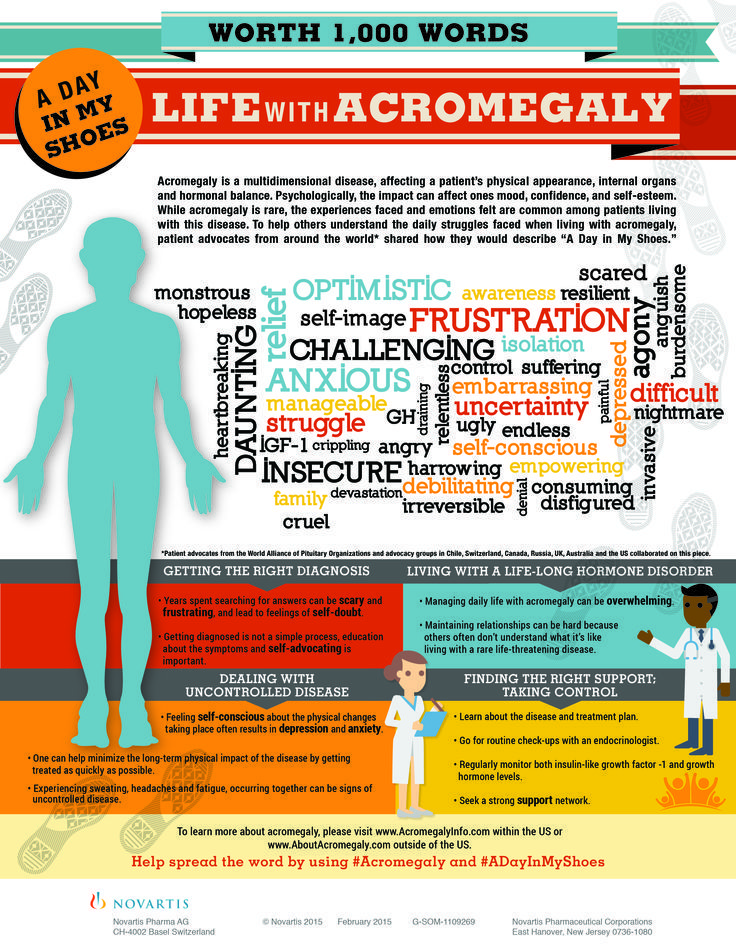 Doing this feels important but the truth is that beyond a certain level, it’s just a navel-gazey spiral of doom. It’s turtles all the way down. And the act of looking deeper itself will sometimes generate more feelings of anxiety, despair, and self-judgment than it relieves.
Doing this feels important but the truth is that beyond a certain level, it’s just a navel-gazey spiral of doom. It’s turtles all the way down. And the act of looking deeper itself will sometimes generate more feelings of anxiety, despair, and self-judgment than it relieves.
When looking at layers of intention and motivation, it’s best to just go a few layers down until you start repeating yourself.
You may be anxious about your relationship with your mother. Let’s say that anxiety stems from the fact that your mom is hyper-judgmental and you fall into this unconscious habit of desperately trying to prove to her that you’re not a piece of shit. This need to prove to her that you’re worthy is underpinned by your desire to be loved. This realization then makes you more anxious—an anxiety driven by the desire to please your mother, which is underpinned by your desire to be loved—we’re spiraling now. It’s time to just draw the line and say it’s turtles all the way down and move on.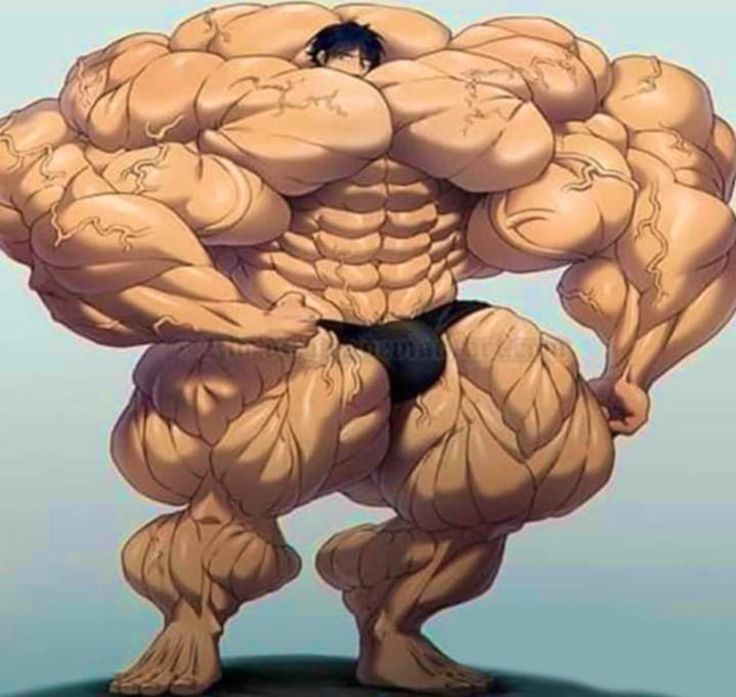 You want love from mom and that’s that.8
You want love from mom and that’s that.8
And with that, I’m going to stop thinking about this section and just go to bed.
Level 3 – What the Hell Are Your Blind Spots?
The more you become aware of your own emotions and your own desires, the more you discover something terrifying: you are full of shit.
We realize that a large percentage of our thoughts, arguments, and actions are merely reflections of whatever we are feeling in that moment.
If I am watching a movie with my wife and I’m cranky because I had an argument with my editor that afternoon, I’ll decide that I hate the movie. And the more my wife tries to convince me the movie was good, the more I’ll relish the fact that I get to argue with her about it—because it suddenly becomes a way to justify my anger.
(By the way, if you ever wondered why we tend to fight the most with the ones we love the most, this is partly why: we can use them as an emotional punching bag to validate all the crap that we are feeling, whether they deserve it or not—usually not. )
)
We all think of ourselves as independent thinkers who reason based on facts and evidence, but the truth is that our brain spends most of its time justifying and explaining what the heart has already declared and decided. And there’s no way to fix that until you’ve learned to recognize what the heart is saying.
I’ve written quite a bit about how flawed our conscious minds are, both in my book and on this site. But to give a quick synopsis:
- Our memories are unreliable and often flat-out wrong, especially when it comes to remembering how we felt at a certain time or place. Our ability to predict our thoughts and feelings in the future is even worse.
- We constantly overestimate ourselves. In fact, as a general rule, the worse we are at something, the better we think we are, and the better we are at something, the worse we believe we are.
- Contradictory evidence can often make us surer of our position rather than inspire us to question it.
- Our attention naturally only focuses on things that already cohere to our pre-existing beliefs.
 This is why two people can watch the exact same event and come away with two completely contradictory memories of it (think of two opposing sports fans both convinced they saw the ball land in or out of bounds.)
This is why two people can watch the exact same event and come away with two completely contradictory memories of it (think of two opposing sports fans both convinced they saw the ball land in or out of bounds.) - Most of us, when given the opportunity, will tell small lies to improve our results. Sometimes (i.e., usually), we’ll even tell these lies to ourselves.
- We are abysmal at estimating statistics, making cost-benefit decisions, or reasoning about large populations of people. It’s actually both depressing and hilarious how bad we are at this.
I could keep going, but I’ll stop there. Basically, the point is that you suck, I suck, everybody sucks. Humans kind of suck. All the time.
And that’s OK. The important thing is just that we’re self-aware about it. If we know our weaknesses, then they stop being weaknesses. Otherwise, we become enslaved to our mind’s faulty mechanisms.
Freeing ourselves from the twisted confines of our mind comes down to a few things:
- Hold weaker opinions.
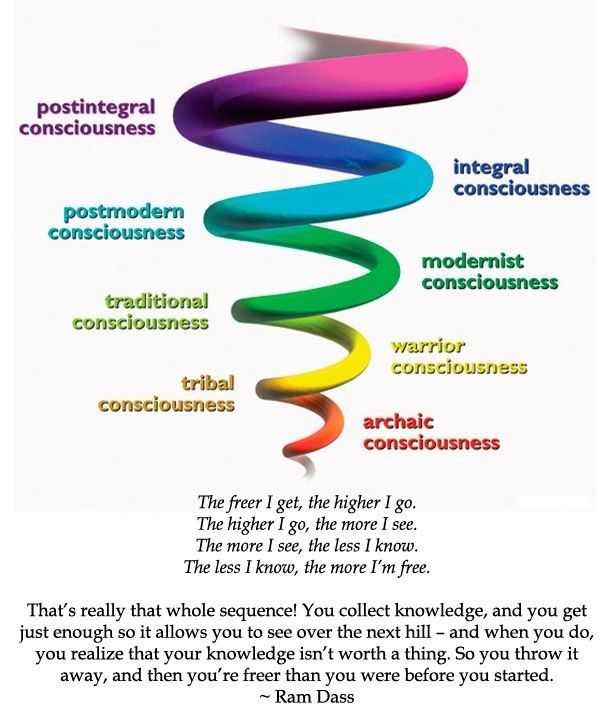 Recognize that unless you are an expert in a field, there is a good chance that your intuitions or assumptions are flat-out wrong. The simple act of telling yourself (and others) before you speak, “I could be wrong about this,” immediately puts your mind in a place of openness and curiosity. It implies an ability to learn and to have a closer connection to reality. I talk about this a lot in my Challenging Beliefs Course in the Mark Manson Premium Subscription. You might want to check it out to see if you hold beliefs that are hurting you in life.
Recognize that unless you are an expert in a field, there is a good chance that your intuitions or assumptions are flat-out wrong. The simple act of telling yourself (and others) before you speak, “I could be wrong about this,” immediately puts your mind in a place of openness and curiosity. It implies an ability to learn and to have a closer connection to reality. I talk about this a lot in my Challenging Beliefs Course in the Mark Manson Premium Subscription. You might want to check it out to see if you hold beliefs that are hurting you in life. - Take yourself less seriously. Most of your thoughts and behaviors are simply reactions to various emotions. And we know that your emotions are often wrong and/or meaningless. Ergo, you should take your shit less seriously.
- Learn your bullshit patterns. When I get angry, I get argumentative and arrogant. When I get sad, I shut down and play a lot of video games. When I feel guilty, I word vomit my conscience all over people.
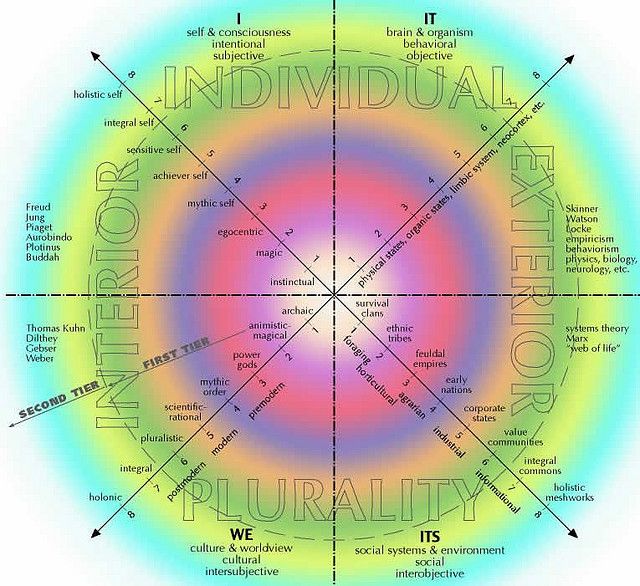 What are your tics? Where does your mind go when you feel sad? When you feel angry? Guilty? Anxious? Learn to spot your coping mechanisms because that will tip you off next time you’re distracting yourself from your feelings. I realized years ago that when I’m healthy and happy, I enjoy playing video games a few hours a week. But when I start binging on a game, staying up all night and skipping work, it’s almost always because I’m avoiding some problem in my life. This has become a huge cue for me to sit down and figure out what’s going on with myself.
What are your tics? Where does your mind go when you feel sad? When you feel angry? Guilty? Anxious? Learn to spot your coping mechanisms because that will tip you off next time you’re distracting yourself from your feelings. I realized years ago that when I’m healthy and happy, I enjoy playing video games a few hours a week. But when I start binging on a game, staying up all night and skipping work, it’s almost always because I’m avoiding some problem in my life. This has become a huge cue for me to sit down and figure out what’s going on with myself. - Recognize the problems you create for yourself. My biggest problem is probably not being able to talk about my anger or sadness. I either escape through video games or become passive-aggressive by sniping at people around me. Both of these tendencies don’t help me. And I’ve learned to recognize myself when I start doing them. I’m able to say, “Hey Mark, you do this shit when you’re sad and you always regret not talking to someone.
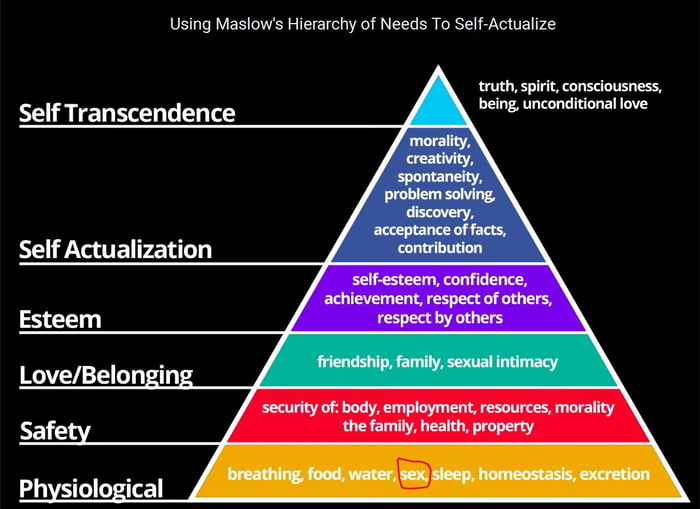 ” Then I go talk to someone.
” Then I go talk to someone. - Be realistic. It’s not about removing your faulty psychological reactions. It’s about understanding them so that you can adjust to them. The same way we all have some skills and activities we’re better at than others, we all have emotions we’re better at than others. Some people are bad with happiness but good at managing their anger. Others are terrible with their anger but relish their happiness. Other people never feel depressed but suffer uncontrollable guilt. Others never feel guilty but struggle with feelings of depression. Where are your strong emotions and weak emotions? Which emotions do you respond poorly to? Where are your biggest biases and judgments coming from? How can you challenge or re-evaluate them?
This, of course, is much easier said than done.
I’m not a huge fan of giving advice in the form of “do X so you can achieve Y and feel Z” or whatever. Everyone is at a different point in different areas of their lives, so it seems a little presumptuous of some random jackass on the internet (me) to tell other people exactly what they should do.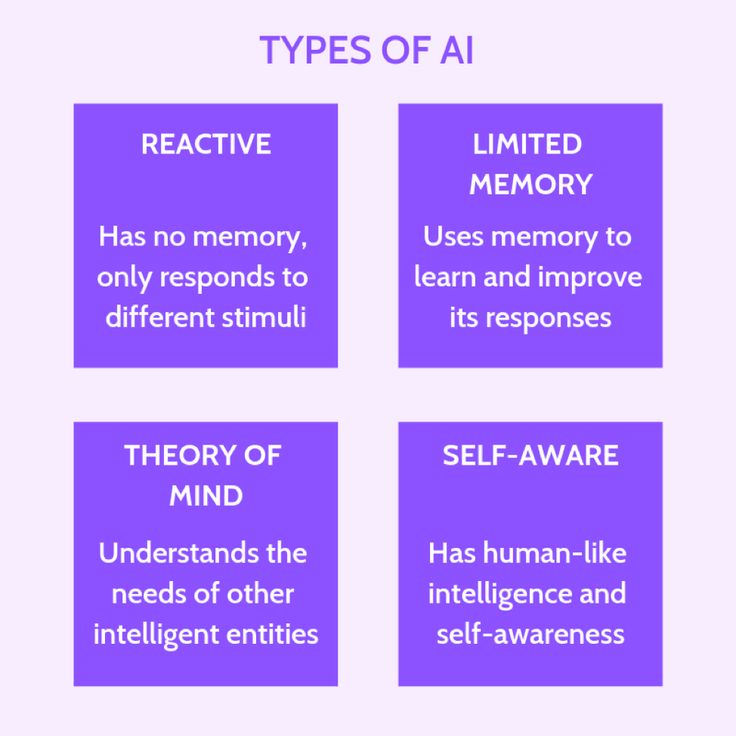
That said, I realize a lot of people need a little more guidance in this area because it can be so confusing (and scary) when you start to uncover parts of yourself you didn’t even know were there.
So here’s a short list of things you can do to start to become more self-aware in your everyday life.
Practice MindfulnessMindfulness is simply the practice of observing what is going on in your mind, body, and environment with focus, clarity, and, importantly, acceptance of what is happening.
You must focus with some degree of concentration on what you are thinking and feeling at a given moment. Then you must clarify those thoughts and feelings: where do they occur in your body, how exactly do they feel—warm/cold, tight/open, exciting/fear-inducing etc.—are they fleeting or enduring, and so on.
Meditation, as I’ve already alluded to, is one such tool to help you practice being more mindful.9 But meditation as a practice by itself is not the goal.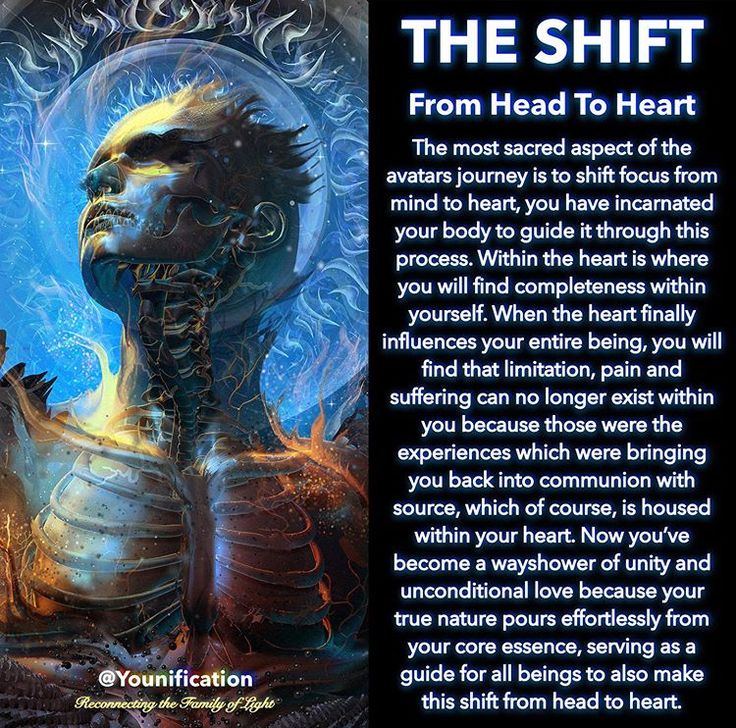 Again, it simply teaches you how to be more aware of what you’re thinking and feeling, usually while you’re sitting quietly without any external distractions (but meditation can technically be done in any environment).
Again, it simply teaches you how to be more aware of what you’re thinking and feeling, usually while you’re sitting quietly without any external distractions (but meditation can technically be done in any environment).
The goal is to take the self-awareness skills you learn from meditation and apply them to your everyday life, being more focused with more clarity and more acceptance of what is going on at any given moment.
Write Things DownKeep a journal, start a blog, send emails to yourself, scribble in a notebook—however you do it, writing is a lot like meditating with an active brain component added in.
That’s because writing has a way of forcing you to focus your mind and get clear about exactly what it is you’re thinking and feeling (see a pattern here?).
As the author Flannery O’Connor said, “I write because I don’t know what I think until I read what I say.”
You don’t have to write beautifully or even all that well in order to get the benefits of this.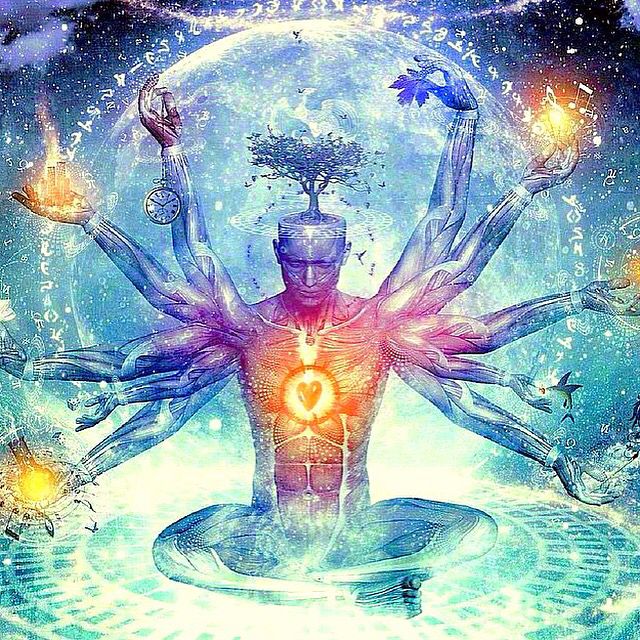 The simple act of organizing your thoughts on paper is often enough to give you more clarity about your thoughts and feelings than keeping it all bottled up between your ears. This is why I’ve added written exercises to every lesson in the member courses on this site, as well as provided downloadable PDF workbooks for my “students” to write on.
The simple act of organizing your thoughts on paper is often enough to give you more clarity about your thoughts and feelings than keeping it all bottled up between your ears. This is why I’ve added written exercises to every lesson in the member courses on this site, as well as provided downloadable PDF workbooks for my “students” to write on.
A lot of people email me every day seeking advice and I’m always amazed at how many will end a long email with, “I know this is long and you probably won’t reply, but just typing it all out gave me a lot of perspective on my situation.”
The reason is that they had to make sense of their problems in their own head before they could put them into words and send them off in an email.
Simple but effective.
Get Honest Feedback From OthersAsking someone you fully trust to point out your blind spots can be a really powerful way to up your self-awareness game—but it can also be incredibly painful.
Others often have a better perspective on us than we do, especially friends and family close to us. Asking them in a simple and safe way (by “safe,” I mean not exploding and threatening to castrate them with a spoon for insulting your honor) can lead to great gains in self-awareness.
Asking them in a simple and safe way (by “safe,” I mean not exploding and threatening to castrate them with a spoon for insulting your honor) can lead to great gains in self-awareness.
This is a pro-level move and I don’t recommend it for everyone, at least not at first when you’re just starting to uncover some Real Shit™ about yourself.
If you go to your best friend or a trusted family member and ask them to be completely honest about who you are as a person, your personality, and/or some part of your life you’re not sure about, what they have to say probably isn’t going to be all that easy to hear.
Look, all of us have some unsavory parts of ourselves we’d rather forget about. We all have demons. We all do stupid shit we regret. We all hurt other people at some point.
So if you’re not ready to have someone judge you for all of that, well, work on mindfulness and writing first. You really need to be able to a) trust someone to tell you the truth and b) not feel attacked when what they tell you is hard to hear.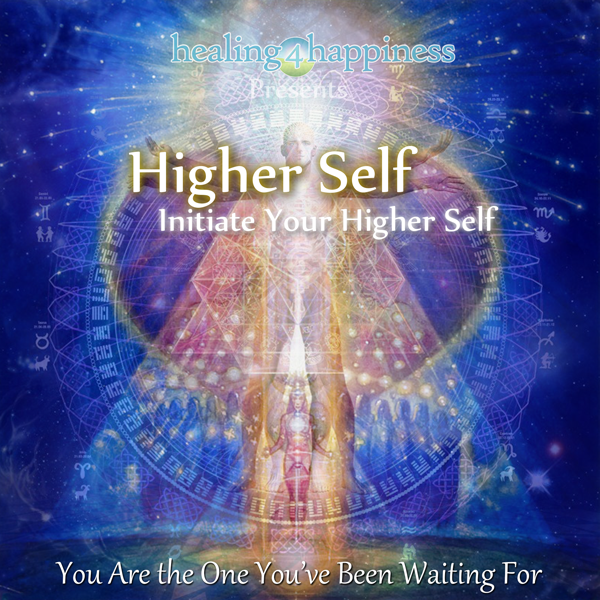 Not everyone can do that easily, but I think it’s something to work towards.
Not everyone can do that easily, but I think it’s something to work towards.
There’s a certain type of person who will read all this and think about it and recognize their shitty emotions and recognize their shitty thought patterns and recognize all the little selfish tricks and traps their mind places and do all the work and practice the self-discovery and open themselves to their emotions and their big takeaway from all this will be: “I’m a piece of shit.”
They will see all their internal flaws, and come to understand their biases and irrational mechanisms, and they will get a handle on their distractions and their weak emotions.
And they will hate it. All of it. It will cause them to hate themselves.
Obviously, walking around and calling yourself a piece of shit for every other thought or emotion you have is not exactly what we would call the zenith of emotional health. In fact, this tendency is, ironically, downright shitty itself.
Judging yourself for mismanaging your emotions or for having biased and selfish thoughts is a bit of a trap because when you make that judgment, it feels like you’re being self-aware.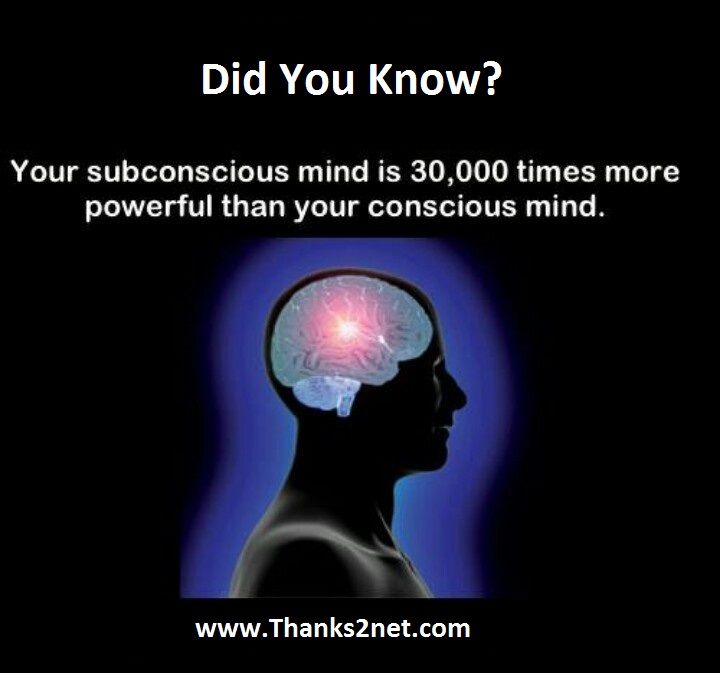 You’re thinking to yourself, “Wow, I was really kind of a dick at that meeting because my ego was threatened. I’m such a piece of shit.” And there’s a little round of applause that goes off in your head because you feel like such a goddamn saint for recognizing how flawed and shitty you are around others.
You’re thinking to yourself, “Wow, I was really kind of a dick at that meeting because my ego was threatened. I’m such a piece of shit.” And there’s a little round of applause that goes off in your head because you feel like such a goddamn saint for recognizing how flawed and shitty you are around others.
But no, that’s not the point.
The research bears this out, too: self-awareness doesn’t make everyone happier, it makes some people more miserable. Because if great self-awareness is coupled with self-judgment, then you’re merely becoming more aware of all the ways you deserve to be judged.10
These emotional outbursts and cognitive biases, they exist in everyone, all the time. You’re not a bad person for having them. Just as other people aren’t necessarily bad people for having them either. They’re just human. And you’re just human.
Plato said that all evil is rooted in ignorance. If you think of the evilest, shittiest people imaginable, they are shitty not because they have flaws—but because they refuse to admit that they have flaws.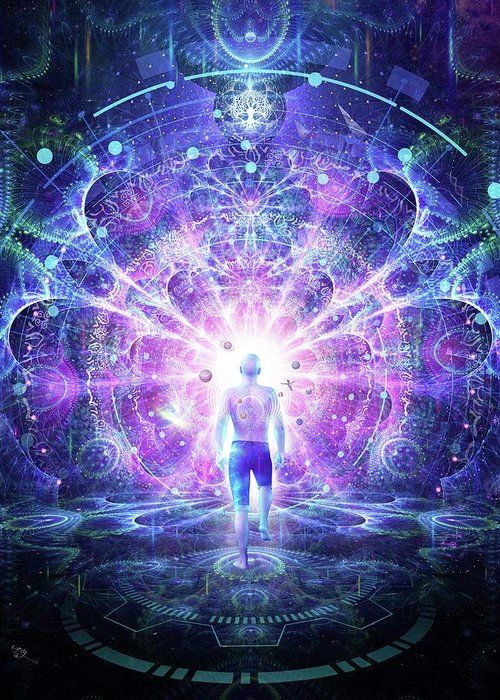
I saw a news story recently about some looney conspiracy theorist who believes that all mass shootings are staged. This guy actually travels to communities where these mass shootings occurred and confronts the victims. He stands in front of parents of dead children and calls them liars.
I cannot imagine a greater definition of “evil” or “piece of shit human” than this guy.
Yet, his evilness is not a result of conscious choice so much as an unconscious choice. He’s unaware of the irrationality and derangement of his own thoughts.
He’s barely on Level 1. Level 2 probably terrifies him because admitting the reality that mass shootings—these horrible and senselessly violent things—can occur all around him, and without reason, threatens him in some unspeakable way that his mind cannot handle. And he’s definitely nowhere near Level 3 where he’s able to actually recognize that his conspiracy theories are elaborate networks of irrational beliefs and impossible assumptions designed to protect himself from these feelings on Level 2.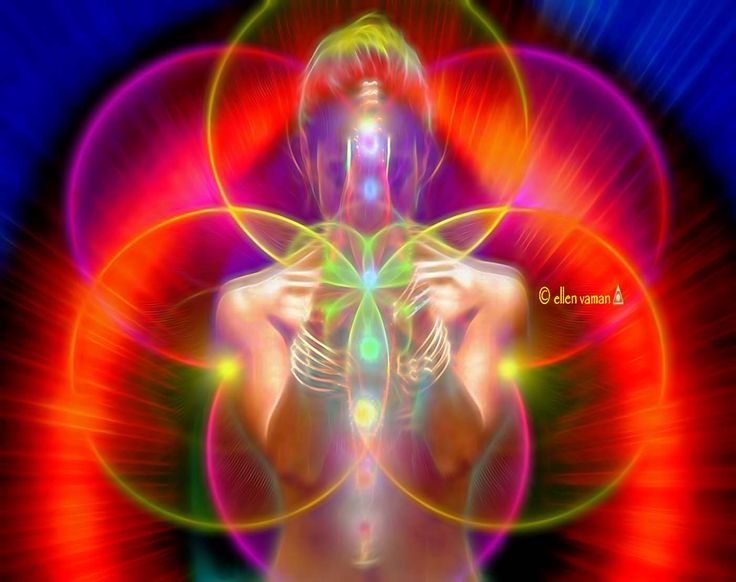
When looked at this way, you almost feel sorry for the guy. You see how much he must suffer psychologically and how that psychological suffering drives him to do horrible, horrible things to the people who are legitimately victims around him.
Welcome to empathy.
Empathy can only occur in proportion to our own self-acceptance. It’s only by accepting the flaws of our own emotions and our own minds that we are able to look at the flaws of the emotions and minds of others, and rather than judge them or hate them, feel compassion for them. “Oh, he’s fucked up, too. I used to believe shit like that. I wonder what he’s running from?”
This isn’t to say that empathy and compassion will solve all the world’s ills. They won’t. But they certainly won’t make anything worse.
And here’s where that old cliche comes in, about only being able to love others in proportion to how much we love ourselves. Self-awareness opens us up to the opportunity to love and accept ourselves.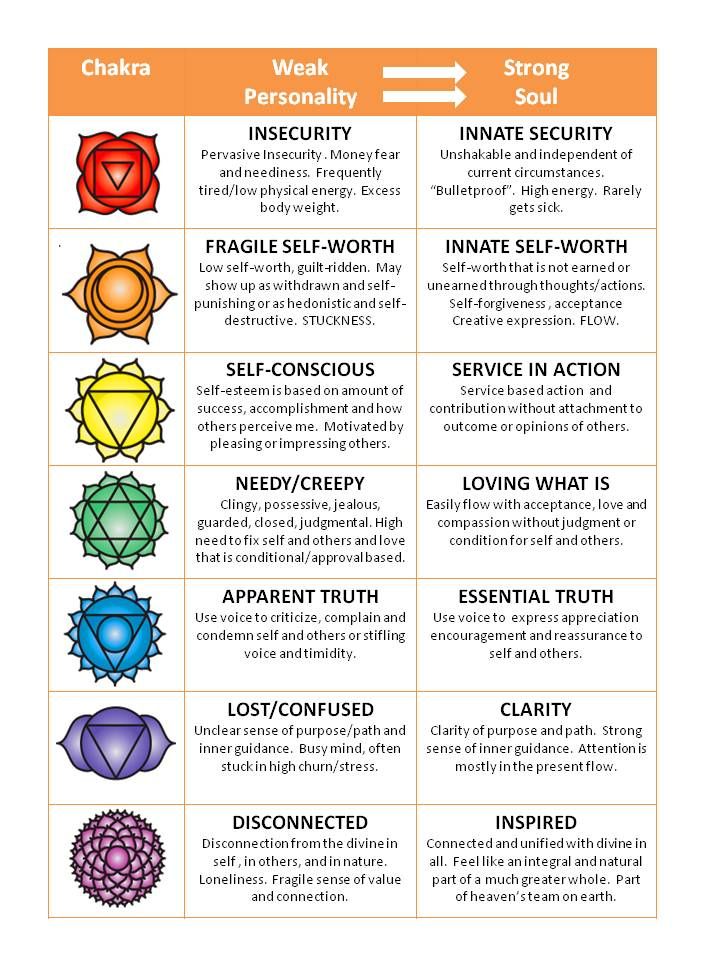 Yeah, I’m a biased fucknut sometimes. Yeah, I mishandle my emotions on occasion. Yeah, I’ve got some vices.
Yeah, I’m a biased fucknut sometimes. Yeah, I mishandle my emotions on occasion. Yeah, I’ve got some vices.
But that’s okay. And because I’ve come to terms with those flaws in myself, I’m able to come to terms and forgive those flaws in others. And it’s only in this way that any real love becomes possible.
When we refuse to accept ourselves as we are, then we return to the constant need for numbing and distraction. And we will similarly be unable to accept others the way they are, so we will look for ways to manipulate them, change them, or convince them to be a person they are not. Our relationships will become transactional, conditional, and ultimately toxic and fail.
Footnotes
- Silvia, P. J., & O’Brien, M. E. (2004). Self-Awareness and Constructive Functioning: Revisiting “the Human Dilemma.” Journal of Social and Clinical Psychology, 23(4), 475–489.↵
- Sutton, A. (2016). Measuring the Effects of Self-Awareness: Construction of the Self-Awareness Outcomes Questionnaire.
 Europe’s Journal of Psychology, 12(4), 645–658.↵
Europe’s Journal of Psychology, 12(4), 645–658.↵ - Ridley, D. S., Schutz, P. A., Glanz, R. S., & Weinstein, C. E. (1992). Self-regulated learning: The interactive influence of metacognitive awareness and goal-setting. Journal of Experimental Education, 60(4), 293–306.↵
- Pryor, J. B., Gibbons, F. X., Wicklund, R. A., Fazio, R. H., & Hood, R. (1977). Self-focused attention and self-report validity. Journal of Personality, 45(4), 513–527.↵
- Baumeister, R. F., & Vohs, K. D. (2003). Self-regulation and the executive function of the self. In M. R. Leary & J. P. Tangney (Eds.), Handbook of Self and Identity (pp. 197–217). New York, NY: Guildford Press.↵
- Curtin, M. (2016, July 21). In an 8-Hour Day, the Average Worker Is Productive for This Many Hours. Inc.↵
- If not, then you’re a terrible human being.↵
- In her book Insight, Tasha Eurich points out that people get caught up when asking “why” questions too much.
 “What” questions, on the other hand, get to the root of the problem faster. In this example: Why are you anxious about your relationship with your mom? Because I need love. Why do you need love? Because I need to feel secure and safe. Why…turtles turtles turtles… Instead, if you simply ask what you would need to not feel so anxious about your relationship with your mother, you quickly get to “I need love from my mother” and you’re both more self-aware in the situation and you have a tangible problem to solve instead of gazing at your navel in an endless turtle dive.↵
“What” questions, on the other hand, get to the root of the problem faster. In this example: Why are you anxious about your relationship with your mom? Because I need love. Why do you need love? Because I need to feel secure and safe. Why…turtles turtles turtles… Instead, if you simply ask what you would need to not feel so anxious about your relationship with your mother, you quickly get to “I need love from my mother” and you’re both more self-aware in the situation and you have a tangible problem to solve instead of gazing at your navel in an endless turtle dive.↵ - For more on mediation, see my guide, Meditation: Why You Should Do It, as well as Shinzen Young’s book, The Science of Enlightenment↵
- Silvia, P. J., & O’Brien, M. E. (2004). Self-awareness and constructive functioning: Revisiting “The human dilemma.” Journal of Social and Clinical Psychology, 23(4), 475–489.↵
Best starting builds for Wolcen: Lords of Mayhem
Let's figure out what active and passive skills to take to create a build in Wolcen: Lords of Mayhem.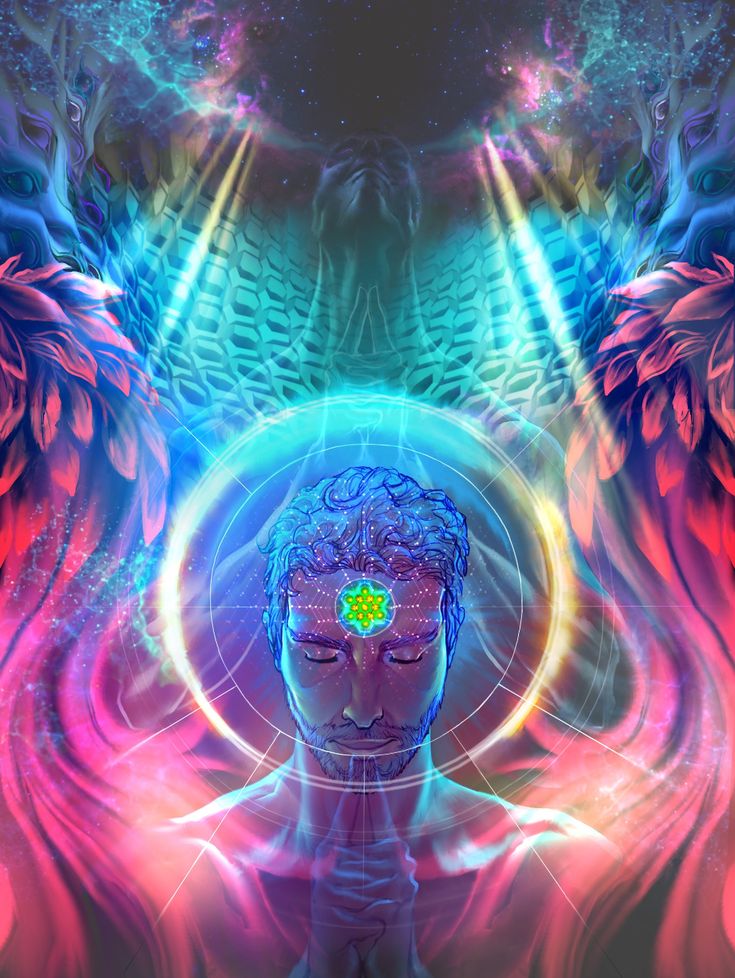 Consider the best starting builds for the mage, war, archer and turret.
Consider the best starting builds for the mage, war, archer and turret.
Plague master
This is a mage class that likes to blow up their opponents. The character's abilities are based on poisoning and the power of aether.
Stats
Ferocity is the most important, wisdom is second. Develop other attributes only every few character levels. Ferocity affects health recovery improvement, critical attack rating, and spell critical rating. Wisdom will increase resistance to negative effects. nine0003
Active Skills
Light Bringer is your most important ability. With it, you can teleport your character - this is very useful when dodging.
Using the Anomaly and Plagueburst skills, you can deal poison damage in an area that causes enemies to explode. Thanks to them, you can eliminate large groups of opponents.
Infinity Blades are a good choice for any build. They will help you fight against huge groups of opponents.
Passive Skills
We begin to develop our character by obtaining skills from the Soldier and Scholar categories.
In the Scientist tree, acquire the skills Increased Awareness, Unwavering Dedication, and Thirst for Knowledge. nine0003
In the soldier tree, the most important skill is The Wild Card.
Other important groups are the Warlock and the Cabalist.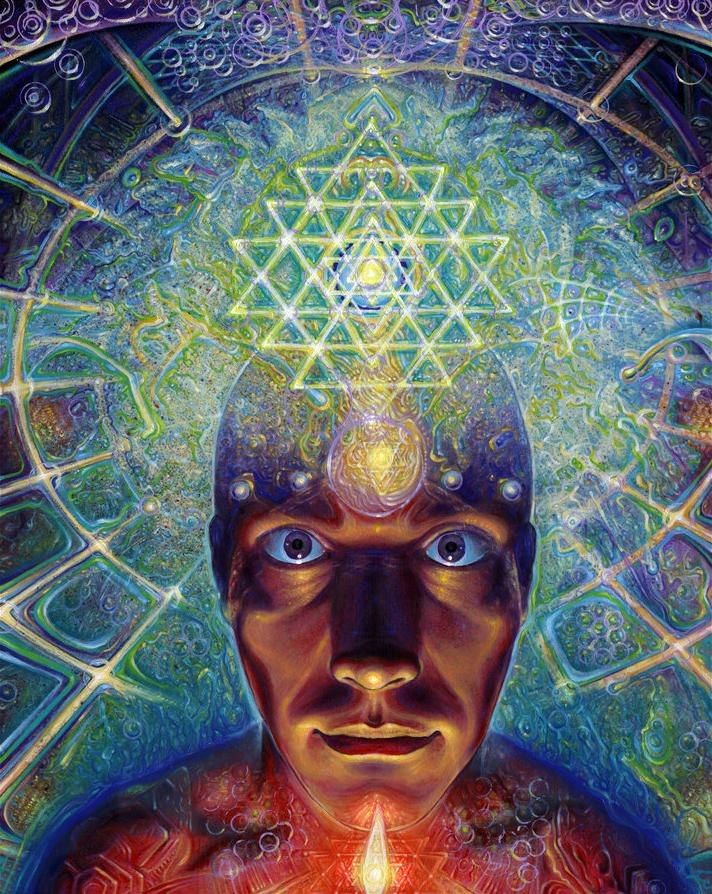
In the Wizard category, look out for Hyper Self-Awareness, Duty to Exterminate, Twisted Obligation, Self-Preservation Instinct, and Sharp Insight.
As for the Qabalist, focus on Power of the First Men, Strong-willed and Artefact Analysis.
Equipment and Upgrades
To play this character well, focus mainly on survivability and force shield. Choose items that enhance negative effects. This way you will quickly destroy your opponents. Remember that gems can improve your weapons. Thanks to them, you can increase your resistance to various effects or improve your strength. nine0003
Mage
This build is for players who like to destroy opponents with magic skills. We choose abilities to stop opponents and attack them while they are defenseless.
Stats
Ferocity comes first, stamina comes second.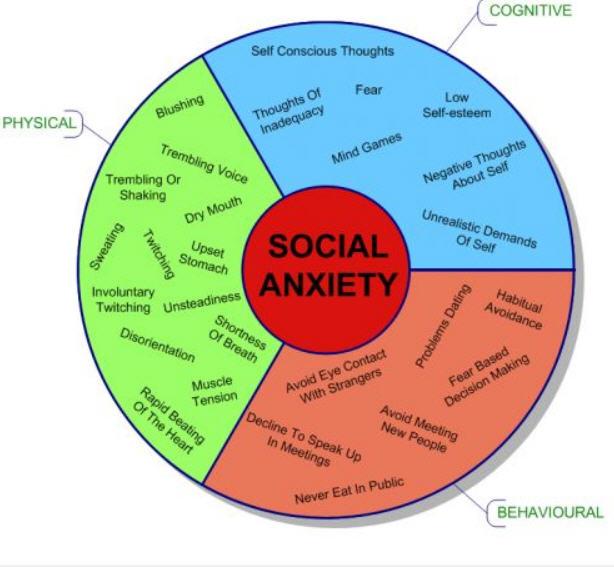 Wisdom is the last quality worth developing. Ferocity will improve health regeneration, critical attack rating, and spell critical rating. Vitality affects the amount of health and resistance to the elements. nine0003
Wisdom is the last quality worth developing. Ferocity will improve health regeneration, critical attack rating, and spell critical rating. Vitality affects the amount of health and resistance to the elements. nine0003
Active skills
The most important skills are Aether Jump and Evasion. With them, you will be able to teleport your character - this is very useful when dodging. In addition, you can create traps that damage enemies.
With the Havoc Orb skill, you can attack your opponents with fiery explosions. This will help to easily get rid of hordes of enemies. nine0003
Bulwark of Dawn will rescue you. It creates a glow that restores your health points. Thanks to this, you can heal yourself permanently.
Passive Skills
Start developing your character with skills from the Scientist category. Get a Chemically Empowered Brain, Heroic Resolve, Propaganda Fueled Zeal, Purifier's Wall, Hardy, and Unyielding. nine0003
Moving on to groups: Warlock, Time Weaver and Cabalist.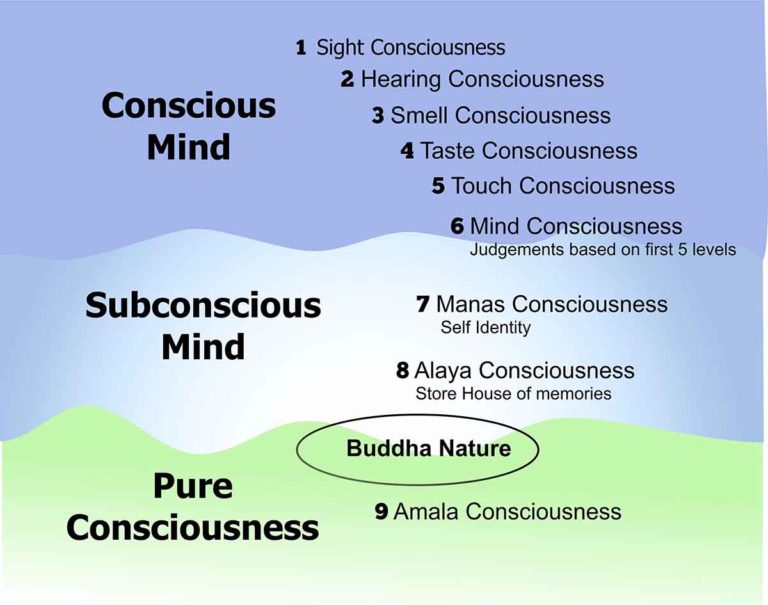 In the Wizard category, get a Witchcraft adept and Resilience to Corruption.
In the Wizard category, get a Witchcraft adept and Resilience to Corruption.
As for the Kabbalist, focus on Power of the First Men, Strong-willed and Artefact Analysis. And finally, get the Time that does not heal (Which Time Cannot Heal) from the Weave of Time category. If you deal damage to stationary enemies, they will take additional damage. nine0003
Equipment and upgrades
The character is based on catalysts and pistols.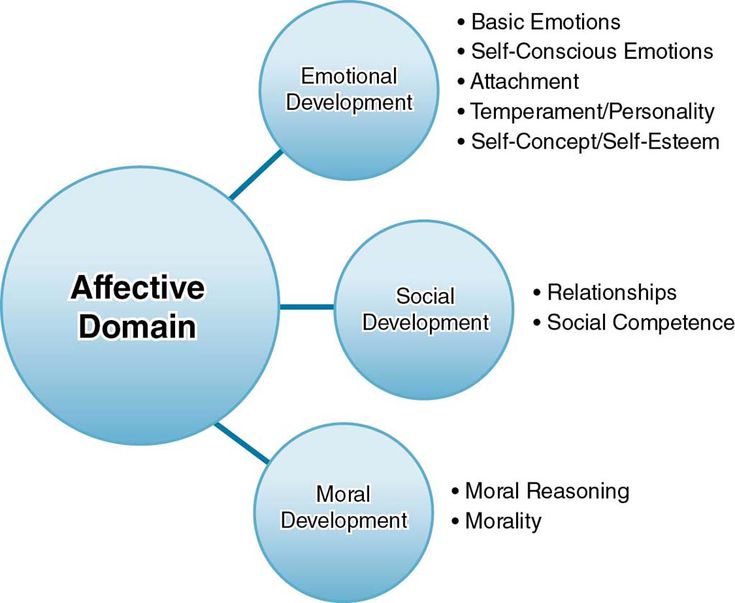 Focus on items that increase critical damage and negative effects.
Focus on items that increase critical damage and negative effects.
Marksman
This build is designed for players who dream of destroying enemies with two guns in their hands. Your abilities are based on area attacks that will allow you to quickly eliminate opponents. nine0003
Attributes
Develop agility and ferocity equally. Wisdom is the least important attribute. Ferocity will affect health regeneration, critical attack chance, and spell critical hits. Vitality affects the amount of health and resistance to the elements.
Active Skills
First of all, take Phantom Blades. With this skill, you will get rid of opponents that are coming straight at you. nine0003
With the Wailing Arrow skill, you can protect yourself from multiple opponents at the same time. This ability summons a huge amount of arrows that form a "wall". They damage everything in that area.
The Havoc Orb will allow you to destroy enemies from a greater distance.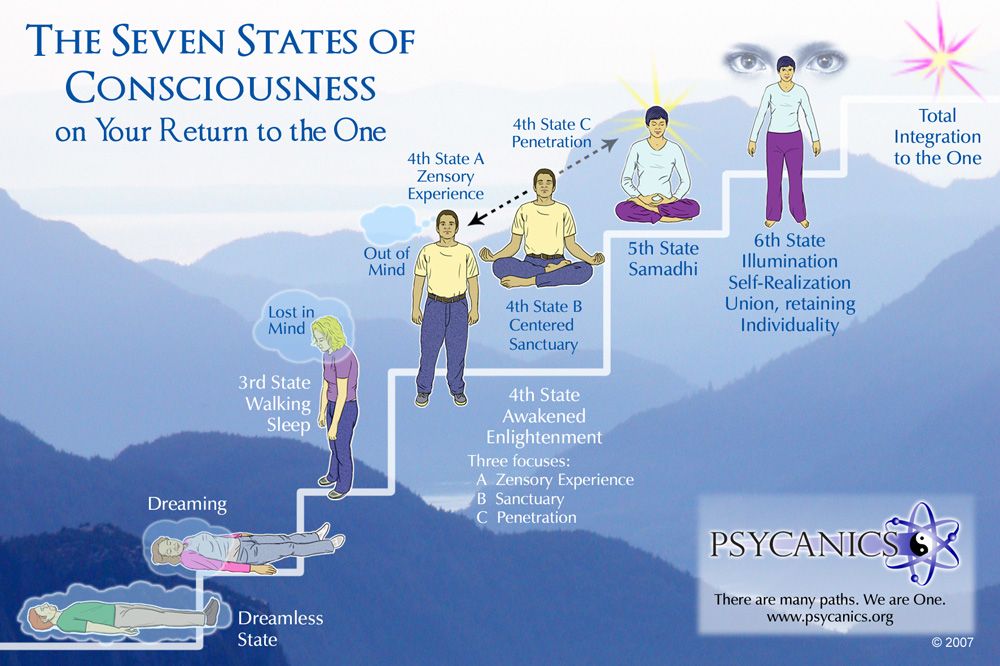 It causes a huge explosion and sets opponents on fire.
It causes a huge explosion and sets opponents on fire.
Using the Autoturret is a good idea. She can deal a significant amount of damage. nine0003
Passive skills
Start developing your character with skills from the Soldier category. Get skills like The Wild Card, The Heat of Battle, and Second Wind.
Other important groups are the Assassin and the Guardian. From the Guardian, acquire any skills that increase stamina. You will eventually unlock Grab and Run (Pinch Runner). This is one of the best skills - it will help you dodge. nine0003
For Assassin, focus on Clandestine Execution, Slipping Shadow, Merciless Lethality and Phantom Strike. These skills will increase the chance of critical damage.
Equipment and Upgrades
For this build, select two pistols and increase their power with gems. Bleeding and stagger damage are the best choices. nine0003
Automatic turret
This build is for players who don't want to get their hands dirty.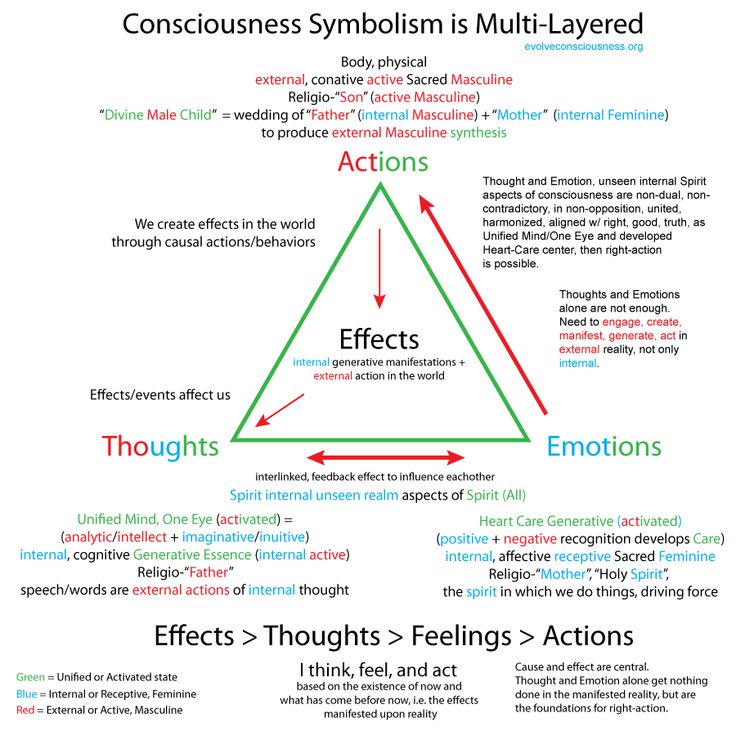 If you choose all the skills correctly, the turret will kill most of your opponents for you. We choose abilities that are based on the speed and recovery of the hero’s health.
If you choose all the skills correctly, the turret will kill most of your opponents for you. We choose abilities that are based on the speed and recovery of the hero’s health.
Stats
Vitality is your most important attribute. It affects the amount of health and shield strength. Agility is the next important characteristic. Thanks to her, it will be easier for you to run away from opponents. nine0003
Active Skills
Let's start with the obvious - the Autoturret. This is the base of your build. Level up when you can and get the Flak Launcher, Cyclone Lightning-Cannon, and Sleepless Sentry.
When you use the Blood for Blood skill, you create an area on the ground that deals damage. If you do not have full health, then part of it will be restored. nine0003
Aether Jump allows you to quickly run away from the enemy. The Bulwark of Dawn is also a good idea. With it, you will heal your hero.
Passive Skills
Start developing your character with skills from the Scholar category. Acquire skills such as Heightened Concentration and Steadfast.
Acquire skills such as Heightened Concentration and Steadfast.
-
-
-
-
-
-
-
-
-
-
-
-
- Wolcen: Lords of Mayhem Advice
- Wolcen: Lords of Mayhem Preview - Ugly Duckling
- The new trailer for Wolcen: Lords of Mayhem showed large-scale battles
Kabbalist. Here we select Clarity of Mind, Master of Curses, Immortal Offering, Strong-willed, Enfeebling Energy and Primordial Insights.
As for the other categories, you only need a few skills from them. From Warmonger, get Maniac Slaughter. nine0003
Ranger will give you Persistence Hunting and Physical Conditioning.
In the Sorcerer tree, take the Duty to Exterminate and Retaliator from the Praetorian.
Equipment and upgrades
Pistols or daggers are best for this character. Use them to eliminate those opponents who dodged your turret. You also need to upgrade your movement and attack speed. Thus, you can easily run away from opponents. nine0003
Thus, you can easily run away from opponents. nine0003
Source
The Dark Pictures Anthology: The Devil in Me for 199r, Steam license!
Selflessness. Stealing Fire [How Flow and Other Altered States of Mind Help Solve Complex Problems]
Despite all the talk about artificial intelligence and supercomputers, the human brain remains the most complex device on the planet, the central link of which is the prefrontal cortex - the most intricate part of our neural apparatus. A relatively recent evolutionary adaptation has resulted in a heightened degree of self-awareness, the ability to delay gratification, plan ahead, draw conclusions from complex logical constructs, and reflect on the process of thinking. This leap of thought contributed to our rebirth from slow, weak, hairless monkeys to highly advanced predators equipped with technology, turning our bestial, disgustingly short life into something definitely more civilized.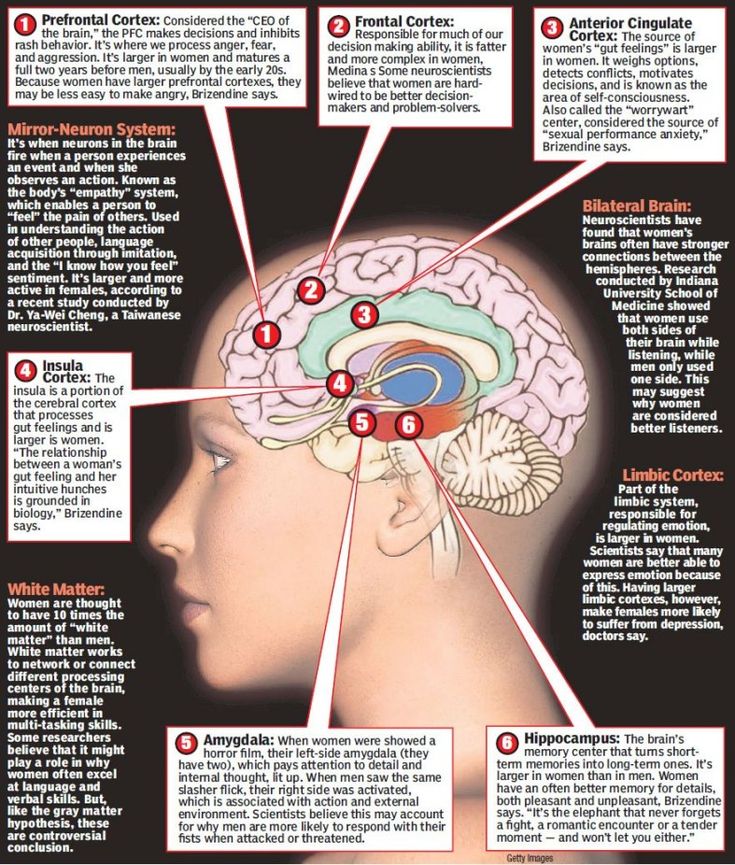 nine0003
nine0003
All this was not easy. No one has yet invented the "switch" of potential self-awareness that makes all this possible. “Self-awareness is not an unconditional blessing,” writes Duke University psychology and neuroscience professor Mark Leary in his aptly titled book The Curse of the Self. “It [self-awareness] is single-handedly responsible for many, if not most, of the problems we face as a species and as individuals…and also causes b about most of the suffering, such as depression, anxiety, anger, jealousy and other negative emotions. Think of the entire multibillion-dollar industries that make up the altered-state economy, what are they made for? Disable self-awareness. To give us a few moments of rest from the voices that are constantly ringing in our mind. Therefore, when we enter an altered state, which gives us access to something more, we first experience a feeling of losing something inside of us. More precisely, the loss of that inner critic with whom we are all born, our inner Woody Allen, the eternal grumbler and defeatist, constantly mumbling in our heads. Once upon a time, Silva also uttered such monologues, until he came across an interesting fact: an altered state can drown out the inner voice. It acts like a switch. In this state, we are not trapped by the neurotic self, because the prefrontal cortex, which is responsible for the self, is taken out of the game. Scientists call this shutdown “transitional hypofrontality”[52]. Transitional means temporary. Hypo - antonym hyper, which means "less than normal". And the concept of frontality is associated with the prefrontal cortex of the brain, that part of it that generates our "I". During transitional hypofrontality, much of the prefrontal cortex shuts down, and with it, our inner critic. Woody is silent for a moment. Having got rid of his constant nit-picking, we experience a feeling of complete peace. “Without an inner voice to evoke negative emotions,” Leary continues, “we release tension and often discover a new, better version of ourselves as a result. The benefits of being selfless go beyond drowning out the inner voice. Freed from the limitations of our identity, we are able to look at life and old stories with fresh eyes. Monday morning will come and we will once again put on the uniform of our everyday roles - parents, spouses, bosses and employees, neighbors - but we will know that this is just a suit with a zip fastener. Harvard University psychologist Robert Keegan[53] calls "opening that uniform" subject-object shift and argues that this is the most important step we can take to accelerate personal growth. According to Keegan, our subjective self is who we think we are, and "objects" are things that we can see, name and discuss with a certain objective detachment . You are too fat. Too skinny. Too smart for the job. Too cowardly to do anything. Endless drumming in my ears. nine0003
You are too fat. Too skinny. Too smart for the job. Too cowardly to do anything. Endless drumming in my ears. nine0003 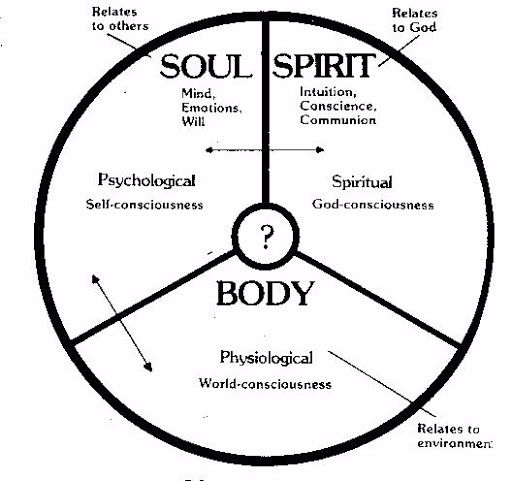 “For me,” says Silva, “everything is simple. If I had not learned to turn off my “I”, I would have returned to the state that haunted me in Venezuela. Too scared to achieve anything. But as soon as the voice in my head disappears, I return to my true self. nine0003
“For me,” says Silva, “everything is simple. If I had not learned to turn off my “I”, I would have returned to the state that haunted me in Venezuela. Too scared to achieve anything. But as soon as the voice in my head disappears, I return to my true self. nine0003 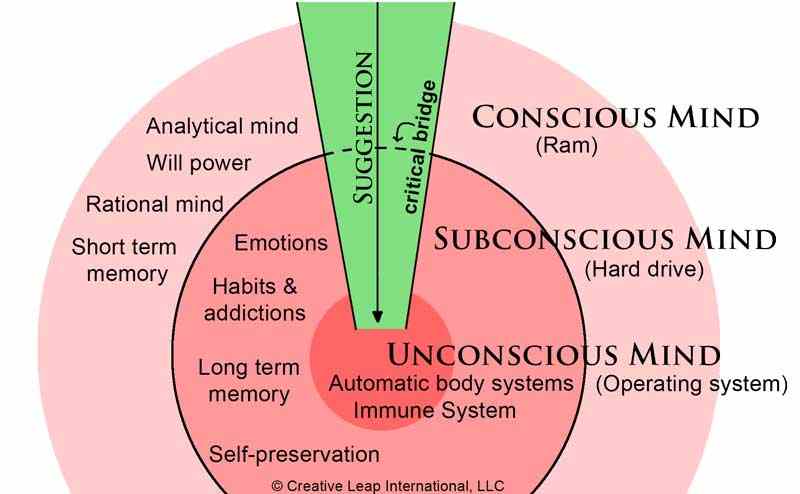
Learn more





